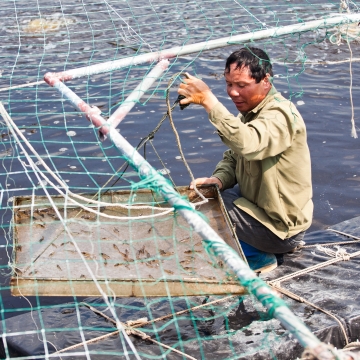
EfD brings global lessons on sustainable aquaculture to UN Ocean Conference
EfD’s Blue Resources for Development, BlueRforD, program took the stage at the 2025 UN Ocean Conference (UNOC3), in the thematic session “Navigating sustainability: Global insights on aquaculture…

Wisdom Akpalu appointed Chairperson of Ghana’s Fisheries Commission Governing Council
Wisdom Akpalu, Director of EfD Ghana, has been appointed Chairperson of the Governing Council of the Fisheries Commission of Ghana. The appointment places him at the helm of the 11-member council…

Chilean researchers share lessons on fisheries and climate at NAAFE Forum 2025
NENRE EfD-Chile research fellows Manuel Estay and Carlos Chávez addressed the efficiency of current fisheries policies and the impact of climate change on the industry in their participation in the…

EfD Nigeria renews push to update Nigeria’s Fisheries Act
In a renewed effort to reform Nigeria’s outdated fisheries legislation, EfD Nigeria has mobilized stakeholders in the fisheries and aquaculture sector to review a revised Fisheries Bill and discuss a…
Pagination
- Previous page
- Page 3
- Next page



